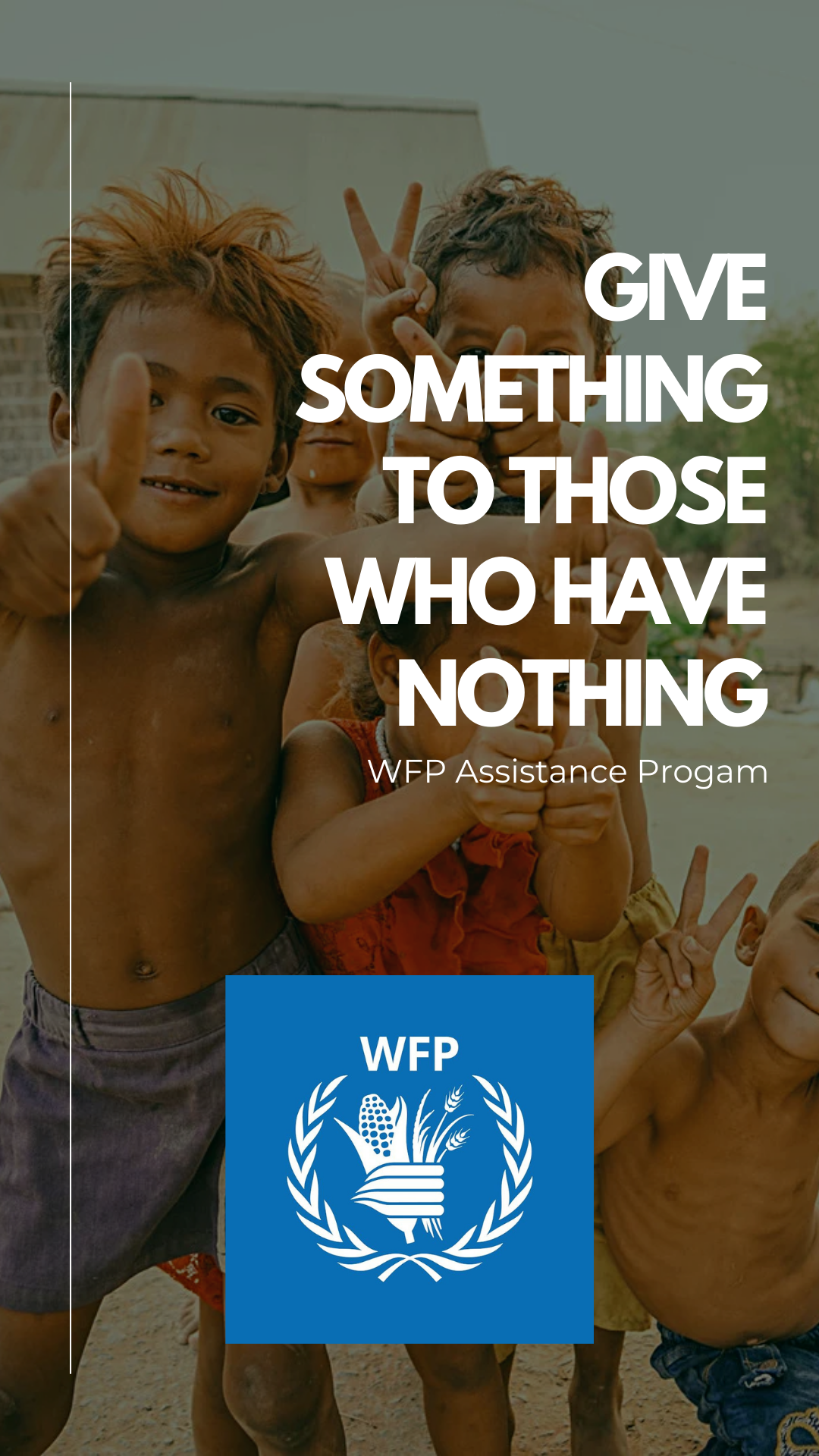
Information managemensSupport to WFP Emergency Operations in Cox’s Bazar, Bangladesh
3iS supported WFP in Bangladesh by enhancing information management for food security programs assisting Rohingya refugees. We established an Information Management Unit to improve data management and analysis, we have deployed ReportHub -an information management system- within the food security cluster to streamline data collection, reporting, and visualization of all food security partners. These efforts strengthened WFP’s capacity to manage food distribution transitions and optimize humanitarian response in Cox’s Bazar.
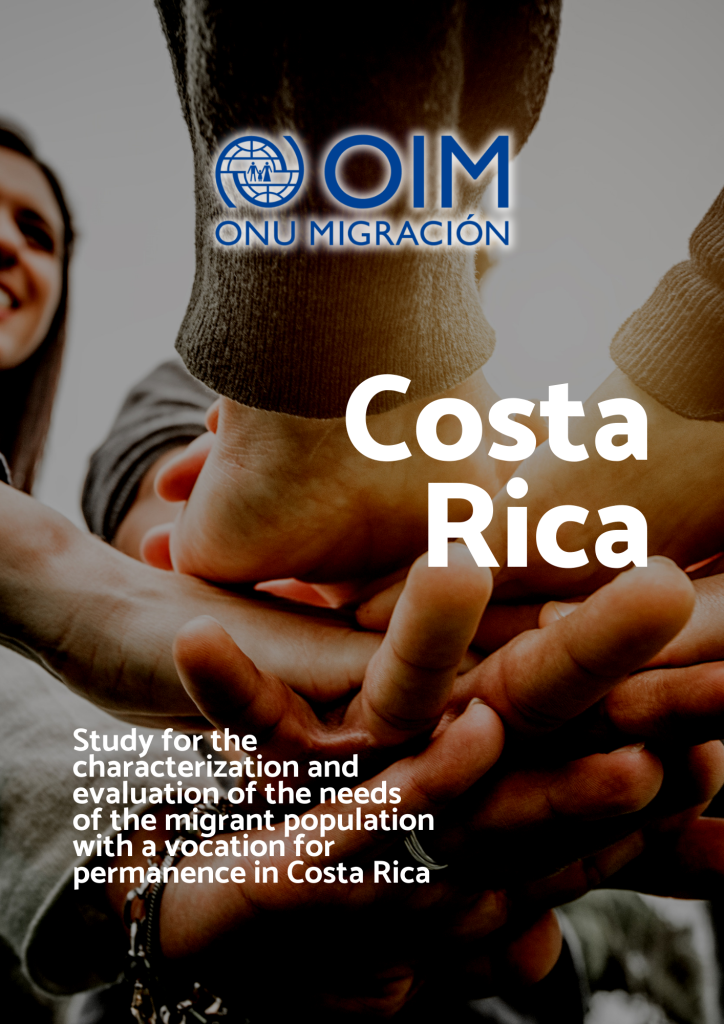
Analysis and evaluation of the needs of migrant populations intending to permanently reside in Costa Rica
3iS collaborated with IOM Costa Rica to assess the needs, socio-economic conditions, and employment status of migrants seeking permanent residence. Through data collection, analysis, and visualization, we provided structured information to support informed decision-making. Our study focused on mapping migrants' geographical distribution, identifying key challenges they face and profiling their socio-economic situation, with the objective to enhance policy planning and socio-economic integration efforts.

Information management support to UNICEF’s Emergency Coordination and Monitoring and Evaluation Units in Colombia
3iS supported UNICEF in Colombia by strengthening their information management capacity in emergency coordination as well around monitoring and evaluation activities. We provided technical assistance to improve data analysis, reporting, and decision-making, focusing on the needs of children, adolescents, and pregnant and lactating women. By developing IM products and supporting field teams in priority regions, we enhanced UNICEF’s ability to coordinate humanitarian efforts and address the challenges posed by migration, armed violence, and natural disasters.

Data collection and analysis of the needs of Venezuelan migrants with the intention of permanently reside in Costa Rica, within the framework of the platform for the coordination of refugees and migrants from Venezuela (R4V)
3iS conducted a data collection and analysis project in Costa Rica to assess the needs of Venezuelan migrants with the intention to permanently stay in Country. In collaboration with IOM and UNHCR, we gathered multisectoral data to support national planning, improve access to services, and inform policy decisions. Through structured surveys, analysis documents, and visual reporting tools, our work contributed to the R4V platform’s efforts to enhance the humanitarian response for migrants in the region.
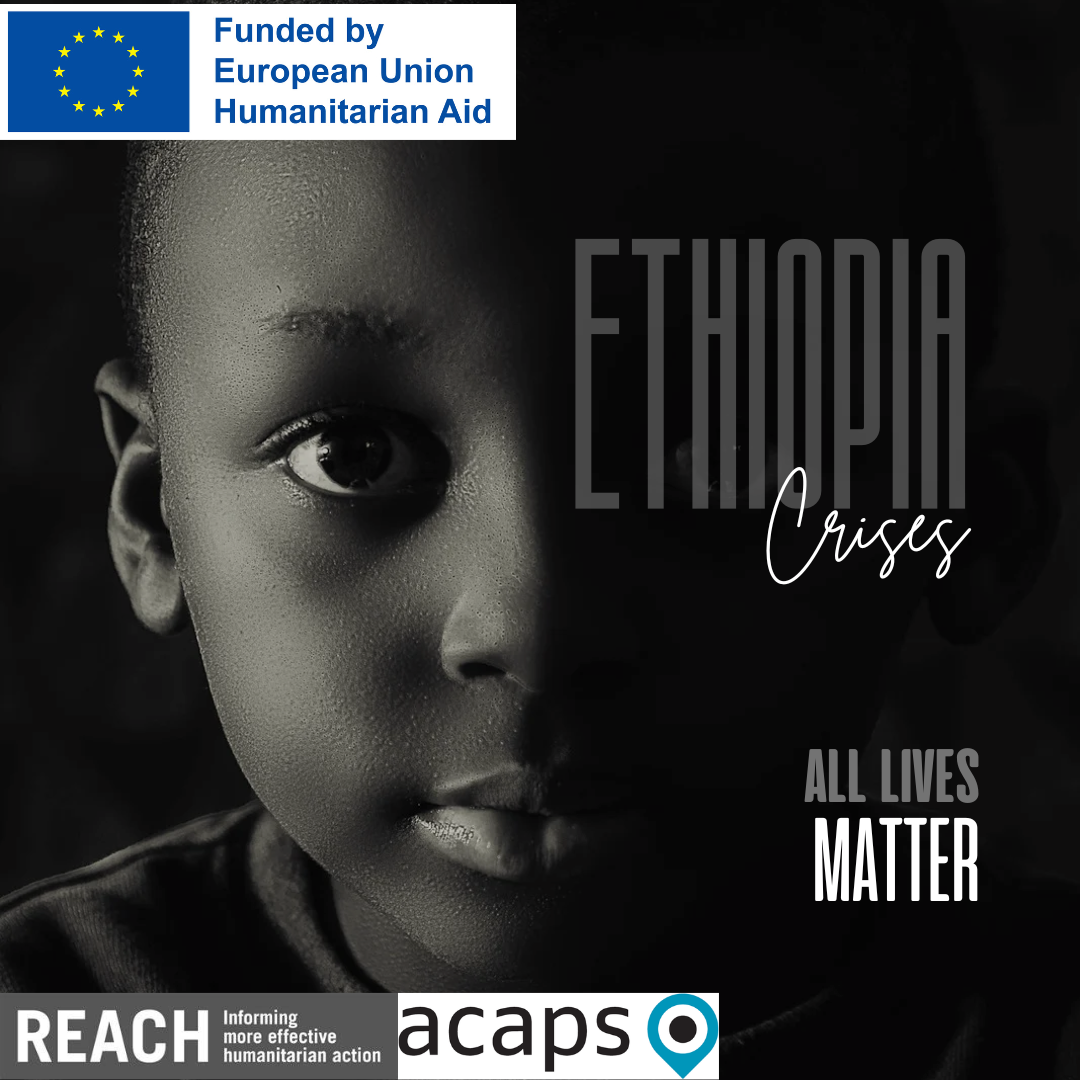
Evidence for humanitarian action - EVIACT Consortium: improved access to coordination of assessments, analysis, and information management services and related capacity-building for humanitarian actors in crisis-affected areas of Ethiopia
3iS leads the EVIACT (Evidence for Humanitarian Action) Consortium in Ethiopia which has the objective of enhancing coordination, data analysis, and capacity-building for humanitarian actors in crisis-affected areas. In partnership with IMPACT Initiatives and ACAPS, we provide information management support, develop digital platforms for data sharing, provide independent analysis support assessments and deliver training to strengthen decision-making. Our work improves the humanitarian response efficiency by transforming data into actionable insights across key sectors and in support of international and national stakeholders active in the response.

Information and analysis support to the humanitarian response in Burkina Faso
3iS supported the humanitarian response in Burkina Faso by establishing an Information and Analysis Unit to improve data collection, analysis, and visualization for crisis responders. In collaboration with OCHA and the H2H Network, we enhanced coordination, developed data-sharing platforms, and provided technical support to humanitarian clusters. We have also delivered tailored capacity building to international and national actors including clusters, INGOs and local NGOs as well as the local authorities. Our efforts strengthened decision-making processes, ensuring more effective assistance for displaced populations affected by the escalating crisis.
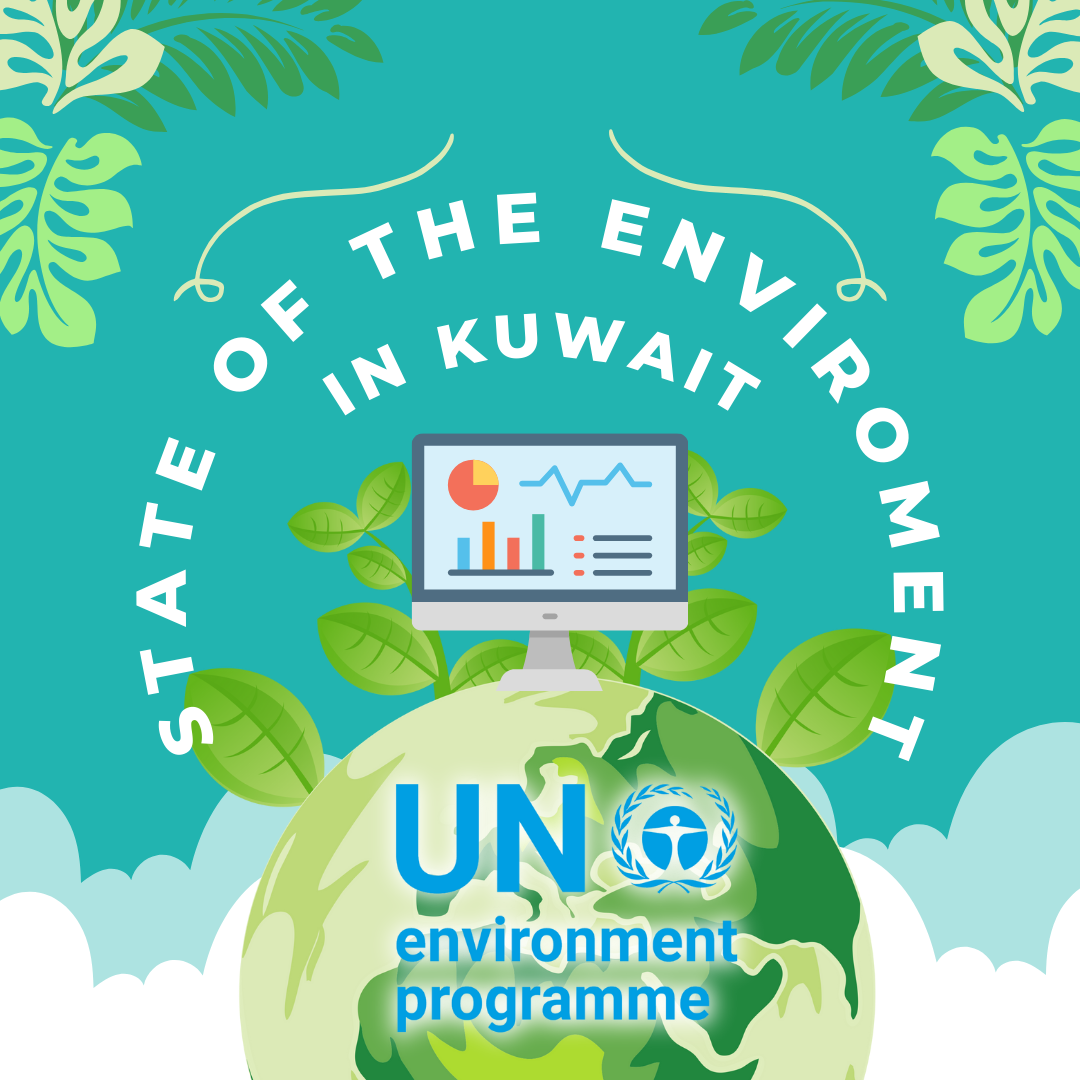
System development support for the Kuwait Environment Public Authority (KEPA)
3iS led the development of an interactive web dashboard for the Kuwait Environment Public Authority (KEPA) in collaboration and with funding from UNEP. This tool visualizes the Kuweit State of Environment Report, providing decision-makers with real-time data to identify environmental trends, support disaster preparedness, and enhance sustainability efforts. 3iS has developed this interactive system and has trained KEPA for an autonomous management of the platform. By improving data accessibility the project strengthens environmental monitoring and informed policymaking in Kuwait.
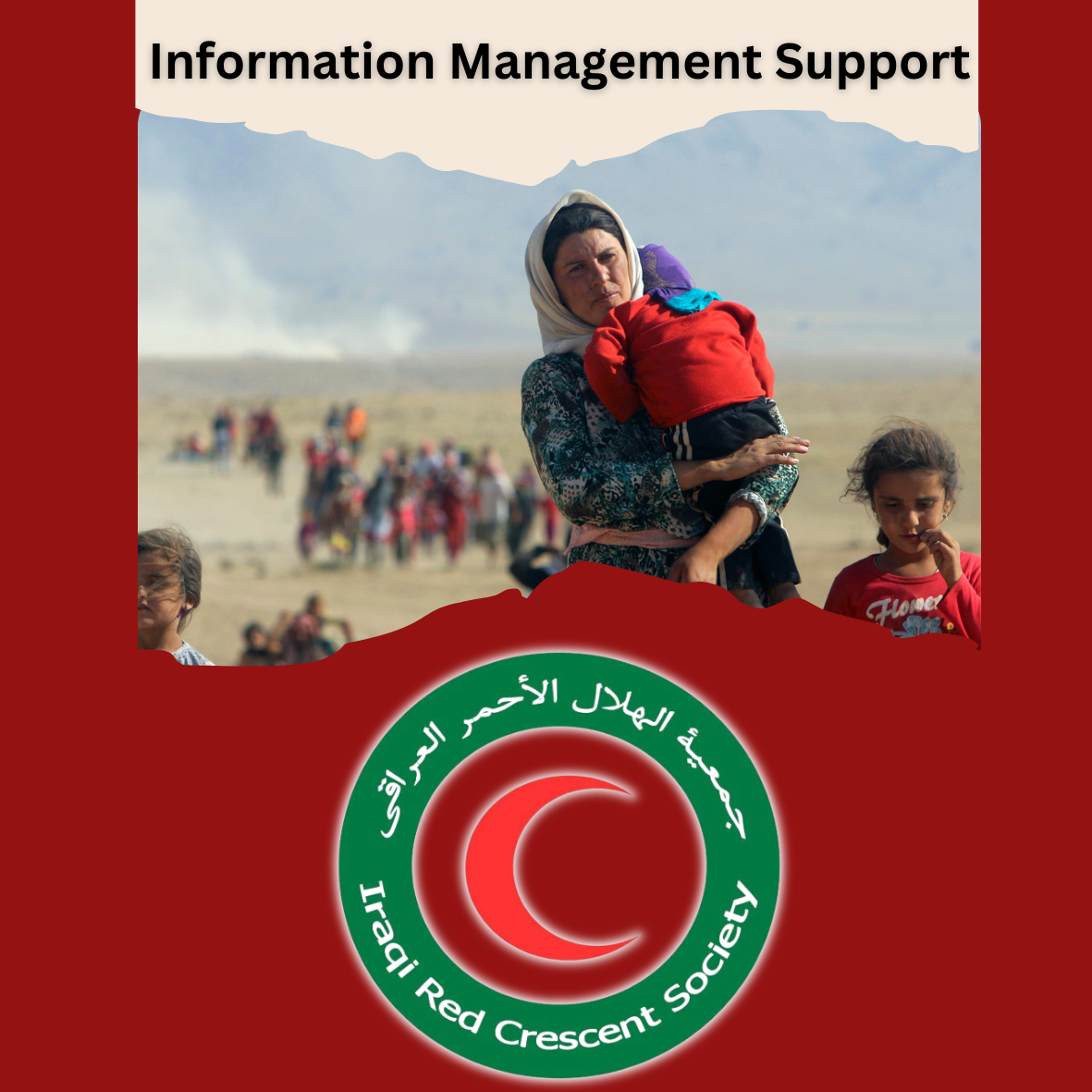
Information workflows change management to the Iraqi Red Crescent Society
To support the efficiency and enhancement of the Iraqi Red Crescent Society's (IRCS) information management workflows, 3iS developed a digital data management system, replacing paper-based reporting with a centralized online platform. This system enhanced data accessibility, security, and visualization, improving decision-making. Alongside capacity-building programs and technical support, 3iS also assisted IRCS in disaster risk reduction and COVID-19 response through interactive dashboards, strengthening their ability to track, analyze, and respond effectively to humanitarian needs.
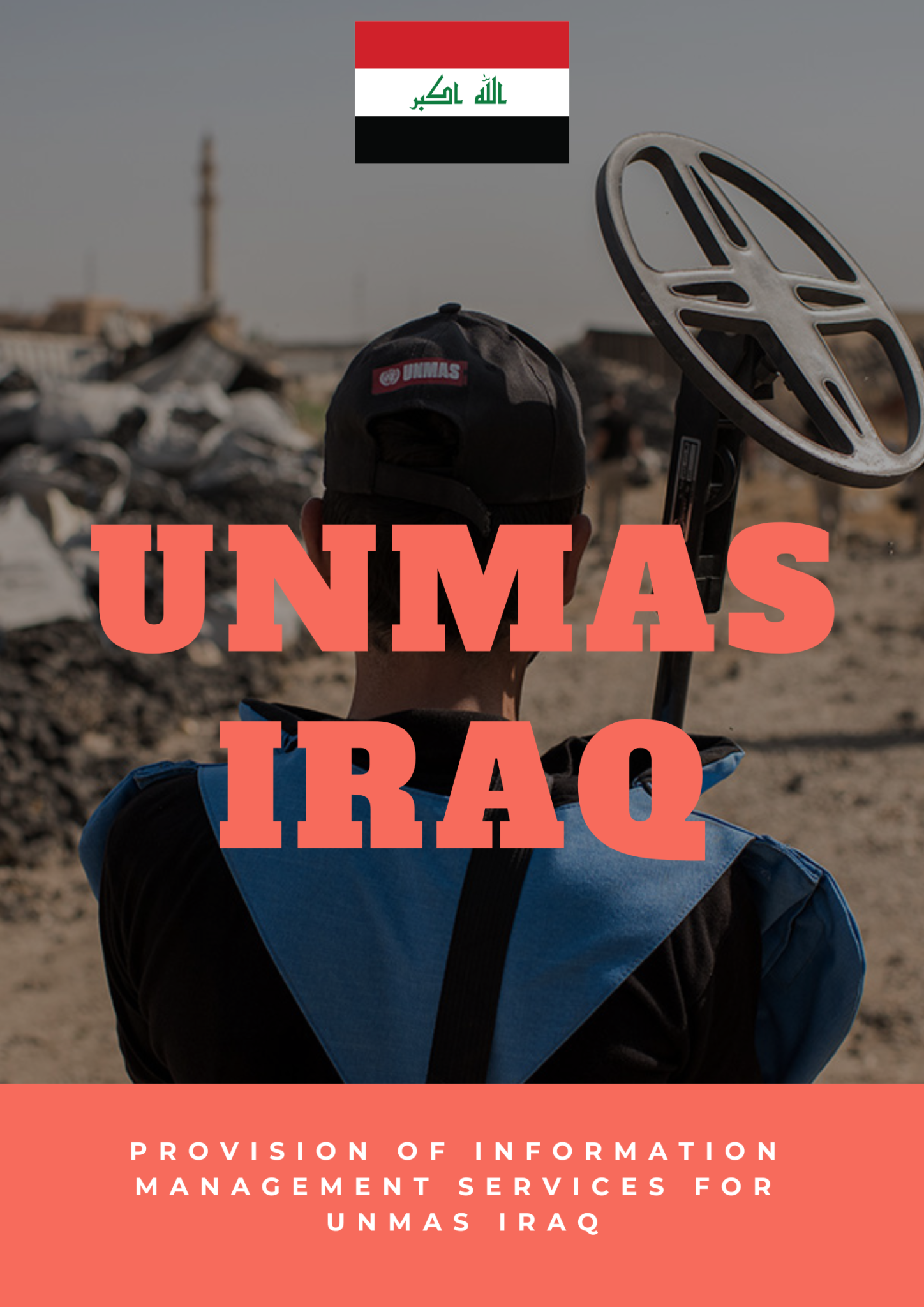
Provision of information management support and information system enhancement for UNMAS Iraq
The Objective of this project was to fully operationalize the UNMAS SMART (System for Mine Action Reporting and Tracking), maintain its components and further develop the system. SMART was designed to implement the integrated and harmonized information management approach of UNMAS Global IM Solution (IMS). In addition, through advanced data processing, GIS mapping, and statistical analysis, we developed digital tools that improved hazard identification, operational planning, and risk mitigation in areas liberated from ISIL. Our work facilitated informed decision-making for humanitarian actors, ensuring safer and more effective explosive hazard management across Iraq.
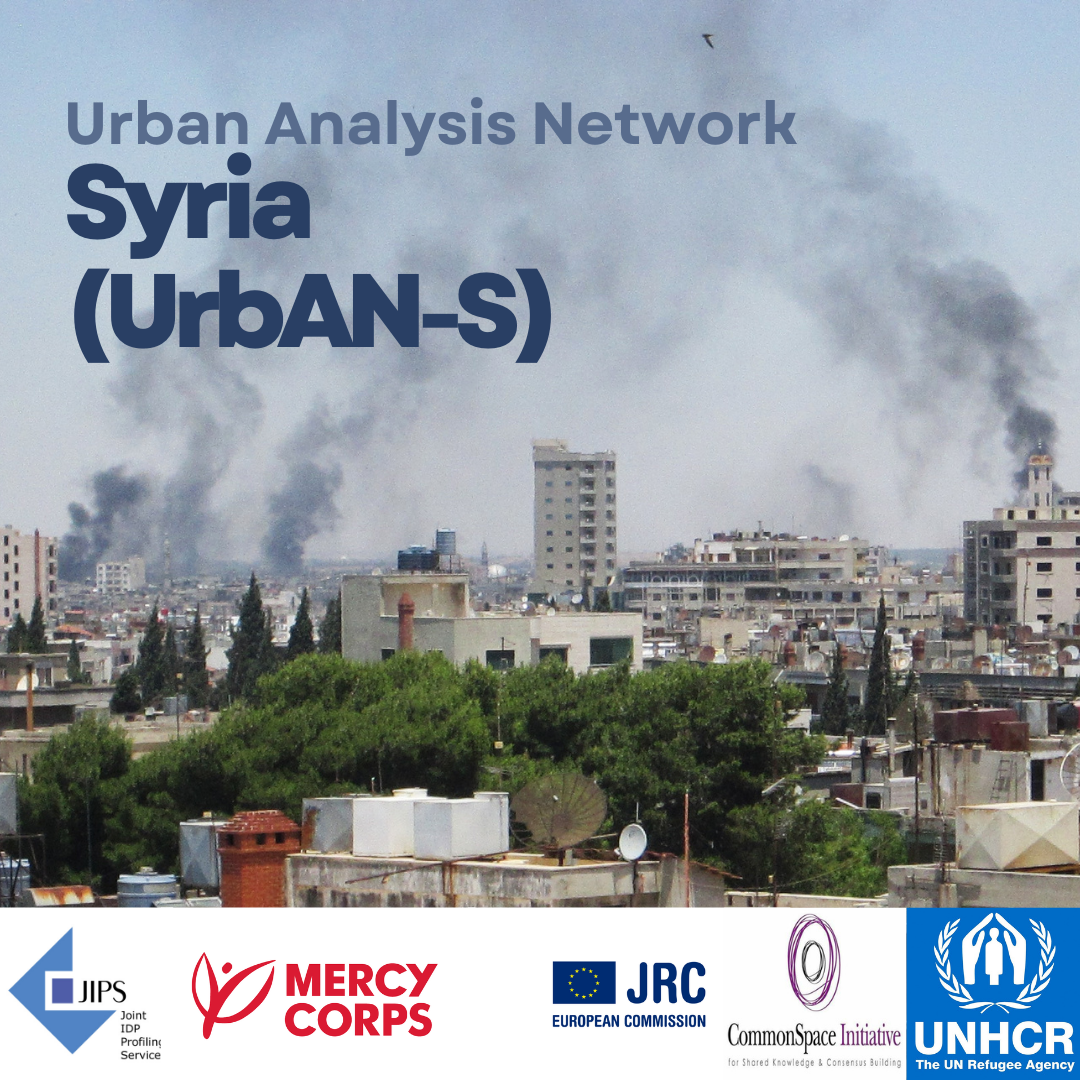
Urban Analysis Network Syria (UrbAN-S)
The Urban Analysis Network Syria (UrbAN-S) was an initiative funded by the European Commission DG-NEAR, led by 3iS to respond to durable solutions planning by developing city profiles, damage assessments, and data-driven planning tools. In partnership with key organizations and the EU-Joint Research Center, we provided in-depth urban analysis, conflict monitoring, and capacity-building to support humanitarian and development actors. Our work enabled better decision-making by offering tailored, real-time insights into displacement, infrastructure conditions, and service accessibility in conflict-affected Syrian cities.
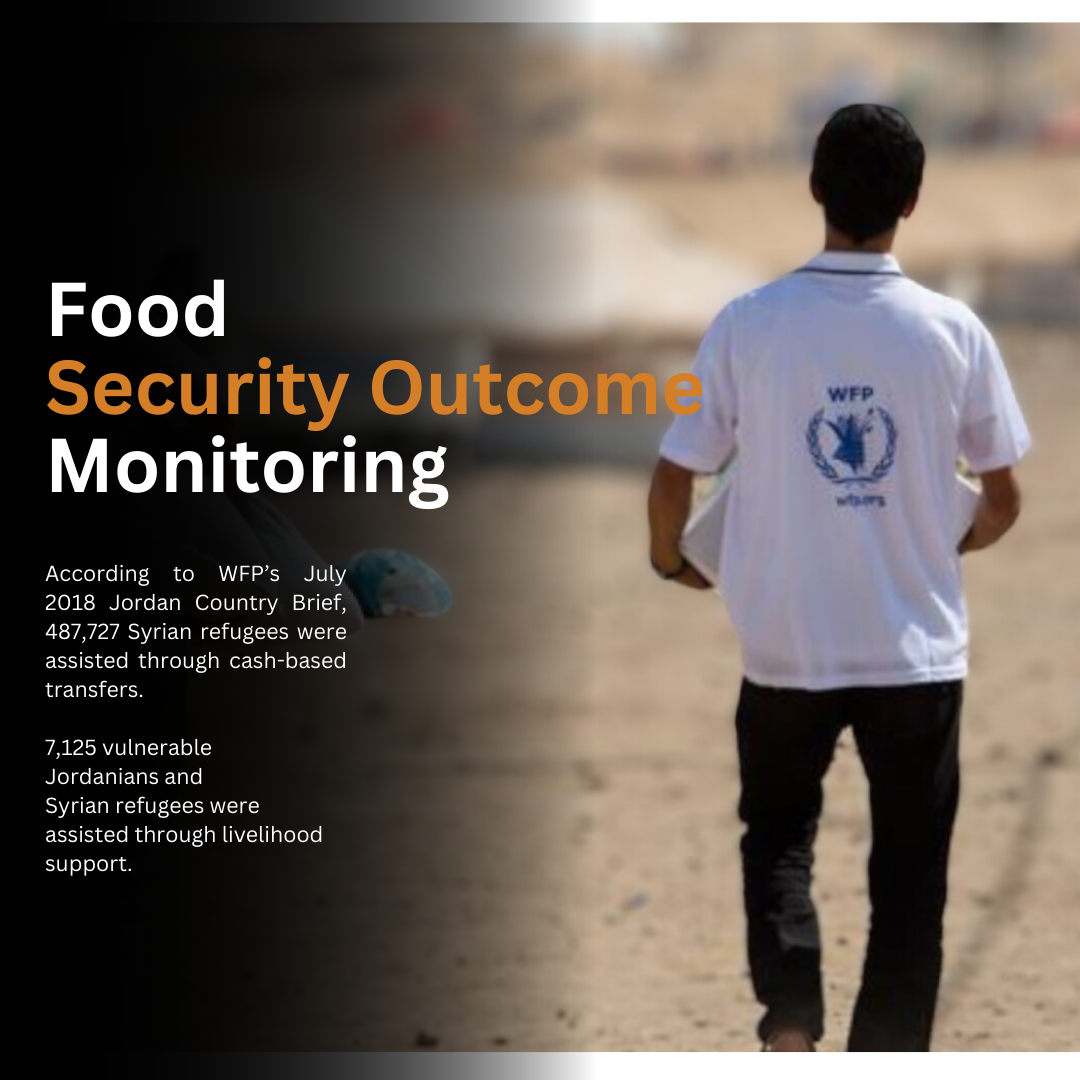
Tailored support to the World Food Programme (WFP) Food Security Outcome Monitoring exercise in Syria
For WFP’s Food Security Outcome Monitoring in Syria, 3iS played a key role in collecting, managing, and analyzing data to assess the impact of food assistance programs. By conducting household and key informant interviews, we provided insights into the food security conditions of both beneficiaries and non-beneficiaries. Our work supported WFP in optimizing its response strategies, ensuring more effective food distribution to vulnerable communities.
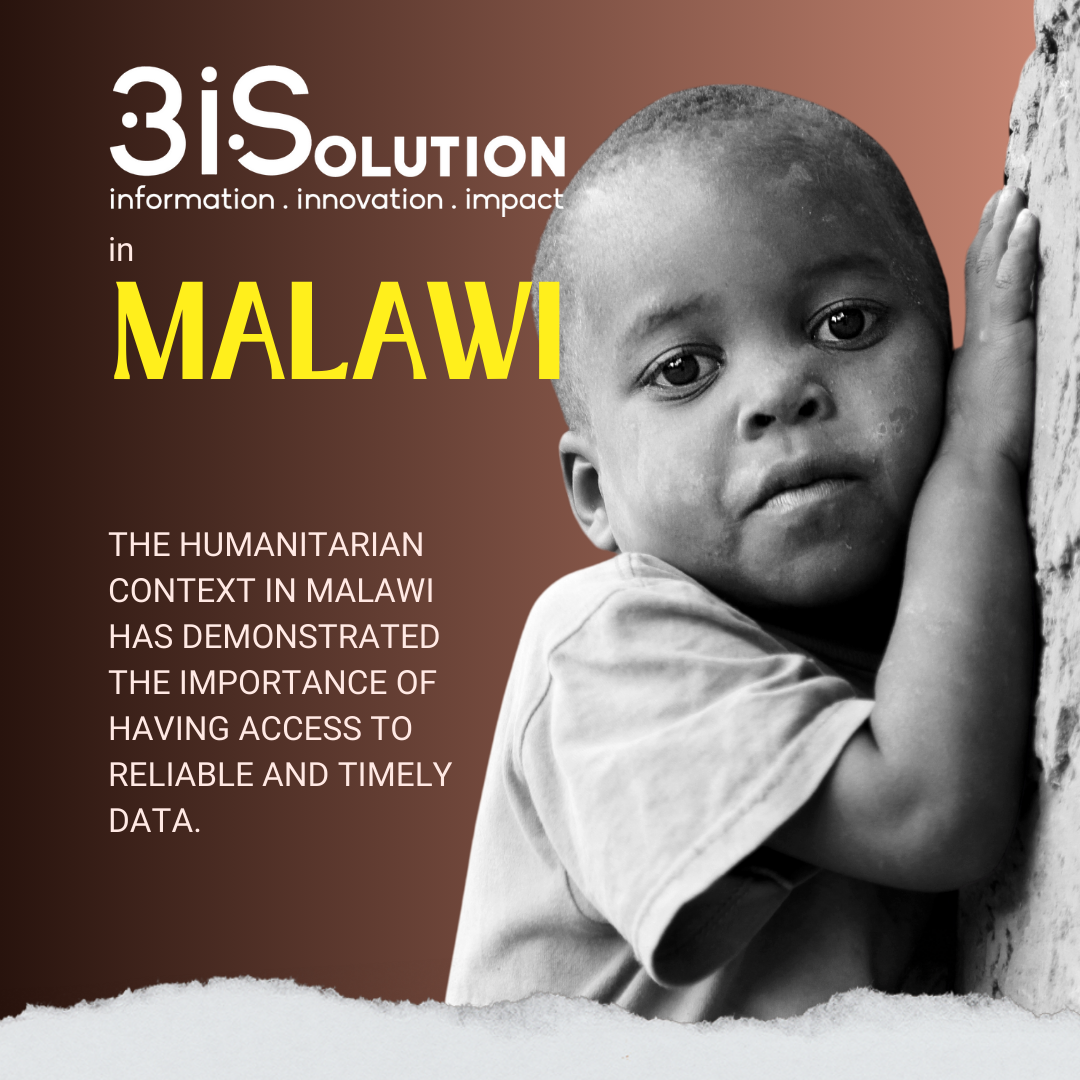
Information management services to humanitarian and development organizations in Malawi
In Malawi, 3iS worked with the UN Resident Coordinator’s Office and WFP to enhance information management for disaster response and development planning. The project, funded by USAID and WFP, has seen 3is leading on mapping data ecosystems, organizing a Data Summit, and providing technical training, with the objective to strengthened the capacity of government agencies and humanitarian actors in data management in disaster response. Our efforts improved data collection, analysis, and visualization, ensuring better coordination and informed decision-making in emergency preparedness and response.
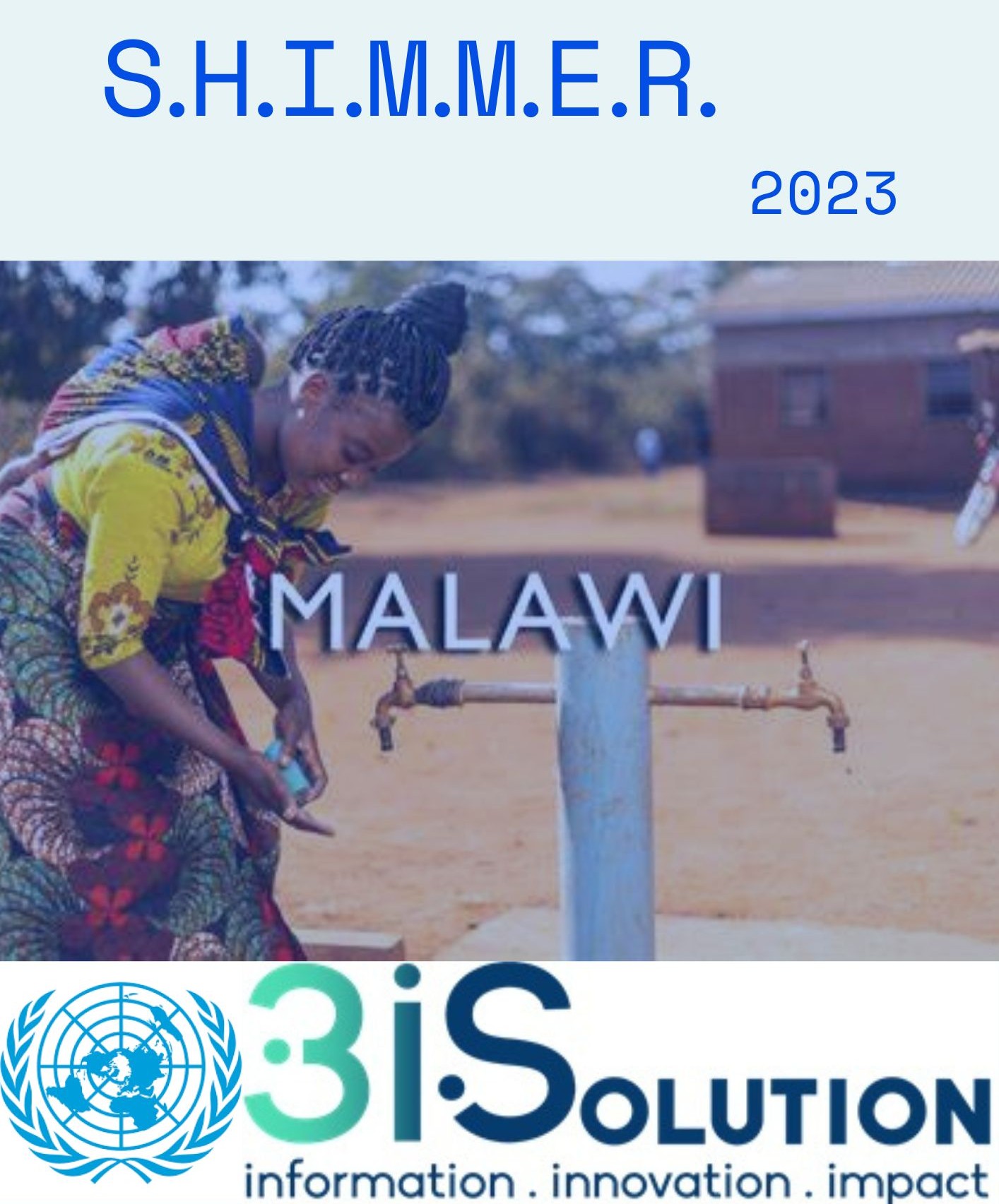
Strengthening Humanitarian Information Management in Malawi for Enhanced Response (SHIMMER)
Through the SHIMMER project, funded by Flanders and WFP, 3iS enhanced Malawi’s disaster response by improving information management coordination and capacity. Working with key stakeholders like the UN-Resident Coordinator Office, the Department of Disaster Management Authority, and WFP, we streamlined IM tools, facilitated data-driven decision-making, and developed critical reports and dashboards, including the National Disaster Recovery Framework. We have also conducted capacity building for DoDMA at district level, enhancing their capacities in information management at time of disaster. Our efforts ensured better preparedness, response planning, and long-term resilience for disaster-affected communities.
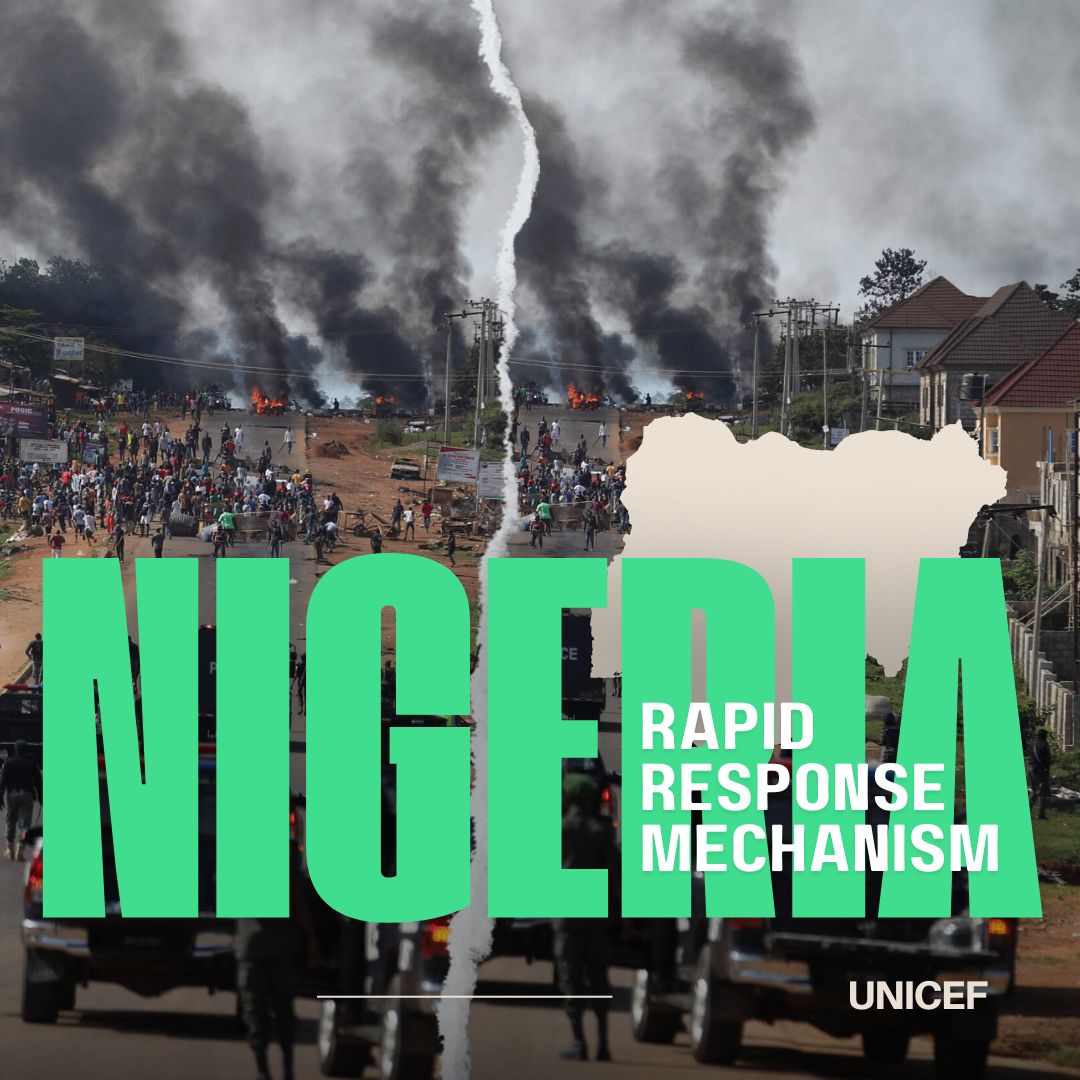
Rapid Response Mechanism in Nigeria - information management support
In Nigeria, 3iS strengthened the Rapid Response Mechanism (RRM) led by UNICFE by closing critical information management gaps in emergency response efforts. We developed a Geospatial Mapping system, improving spatial decision-making and intervention tracking for UNICEF and the other RRM partners in Nigeria. Additionally, we provided IM support, assessments, and training to RRM partners, enhancing their ability to respond effectively to humanitarian crises in the region.
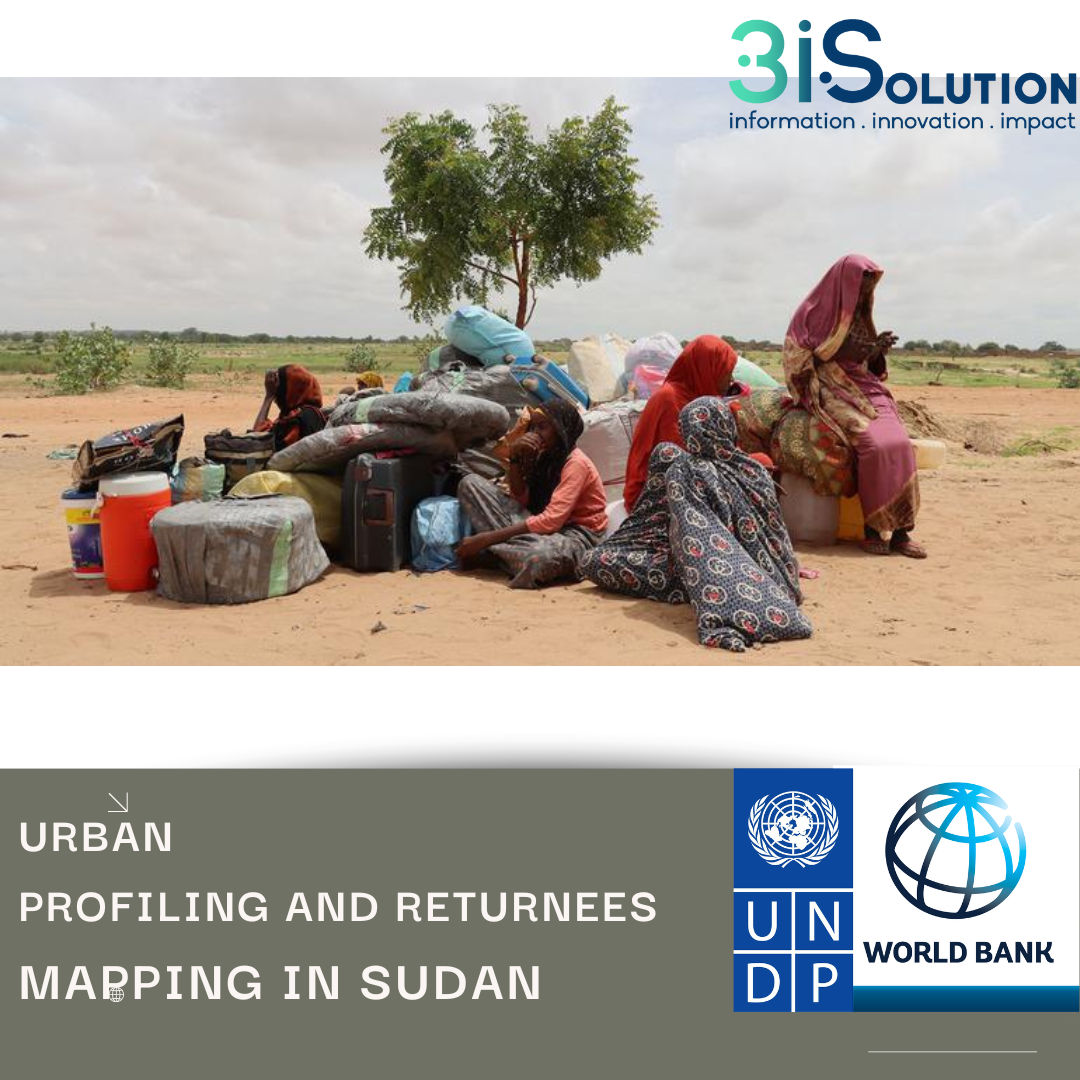
Provision of profiling and coordination expertise to support the Resident Coordinator's Office in Sudan
In Sudan, 3iS supported urban profiling and returnee mapping to inform durable solutions for displaced populations. Funded by the World Bank and UNDP, 3iS has worked closely with the UN-Resident Coordinator Officer, UNDP and government partners and developed data collection tools, maps, and a GIS platform to monitor returnees' movements and assess their needs.3iS activities included the urban assessment including spatial, socio-economic and demographic profiling of certain locations as well as participatory mapping exercises with local authorities and target populations groups. Our work facilitated evidence-based planning by improving coordination, data analysis, and community consultations, ensuring more effective humanitarian and development interventions in displacement-affected areas.
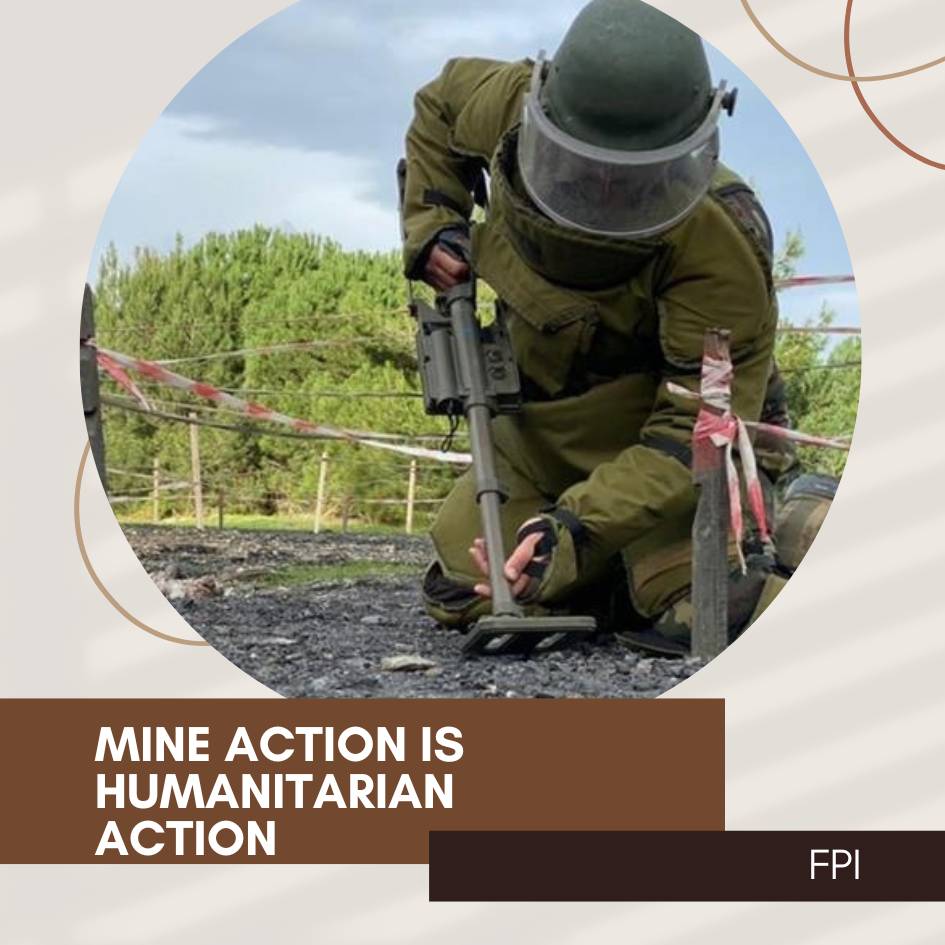
Humanitarian mine aAction response in Northeast Syria
In support of the Humanitarian Mine Action (HMA) efforts, 3iS has been leading HMA coordination, data management, and analysis in Northeast Syria since 2020. With the financial support of the EU-Foreign Policy Instrument, by establishing a centralized IM system, facilitating data-driven prioritization, and boosting coordination among mine action actors we have improved the efficiency of mine clearance and risk education programs. This project has also seen the successful delivery of the first Non Technical Survey in Northeast Syria with the publishing of a report highlighting clear and updated contamination levels. Our work bridges the gap between mine action and humanitarian response, ensuring better protection for affected communities despite the absence of a UN-led coordination mechanism in Northeast Syria.

Information Management support to humanitarian mine action in Chad
3iS as part of the Mine Action Consortium led by the Fondation Swiss de Deminage (FSD) and in partnership with HI, provided critical information management advisory services to the National Mine Action Authority (HCND). Our team enhanced data collection, storage, and analysis using IMSMA software, delivered GIS and IM capacity-building training, and helped standardize national mine action protocols. By improving database management and developing mapping tools, we strengthened HCND’s ability to track contamination, plan clearance operations, and support affected communities.
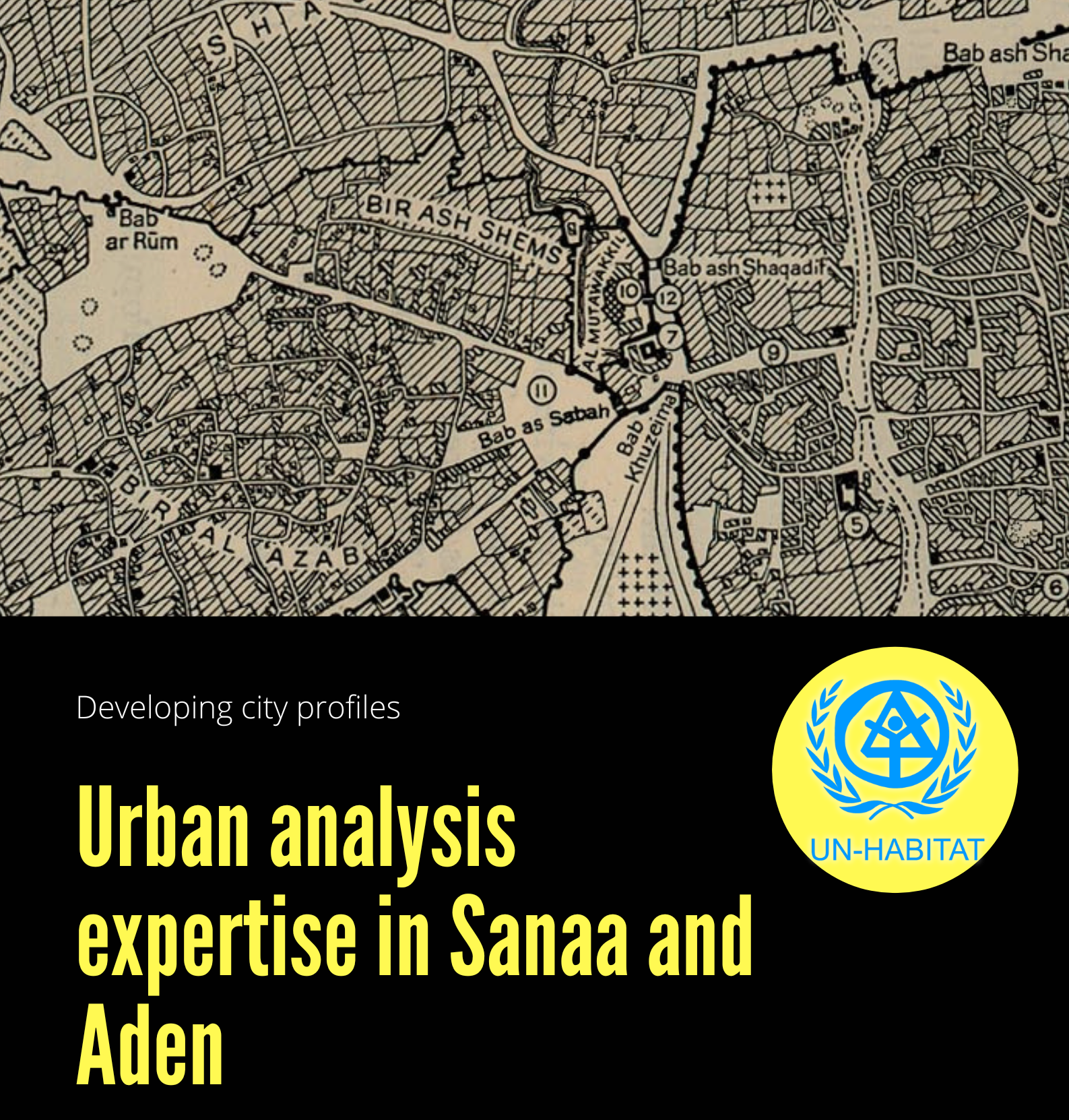
Rapid city and neighborhood profiling - towards a development oriented urban recovery process in Yemen.
Urban recovery in Yemen requires accurate data and strategic planning, especially in conflict-affected cities. Through Rapid City and Neighborhood Profiling, 3iS supported UN-Habitat in developing GIS mapping, damage assessments, contextual and socio-economic analysis and stakeholder analysis to guide humanitarian and reconstruction efforts. By establishing an urban information management system and importantly contributing to the urban profiling of 7 cities in Yemen, we contributed to better decision-making for long-term recovery, resilience, and development planning.
